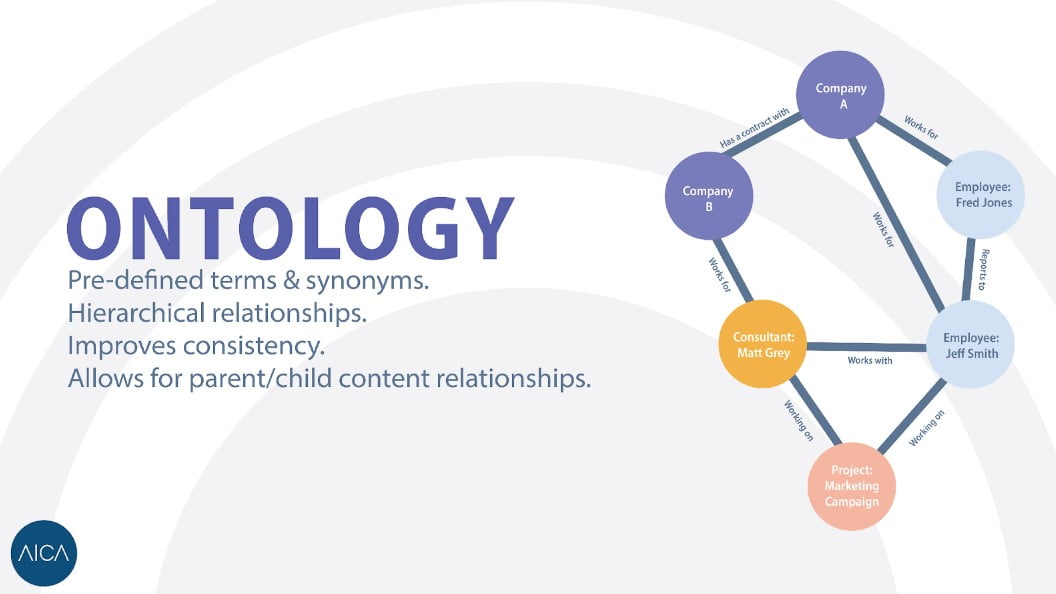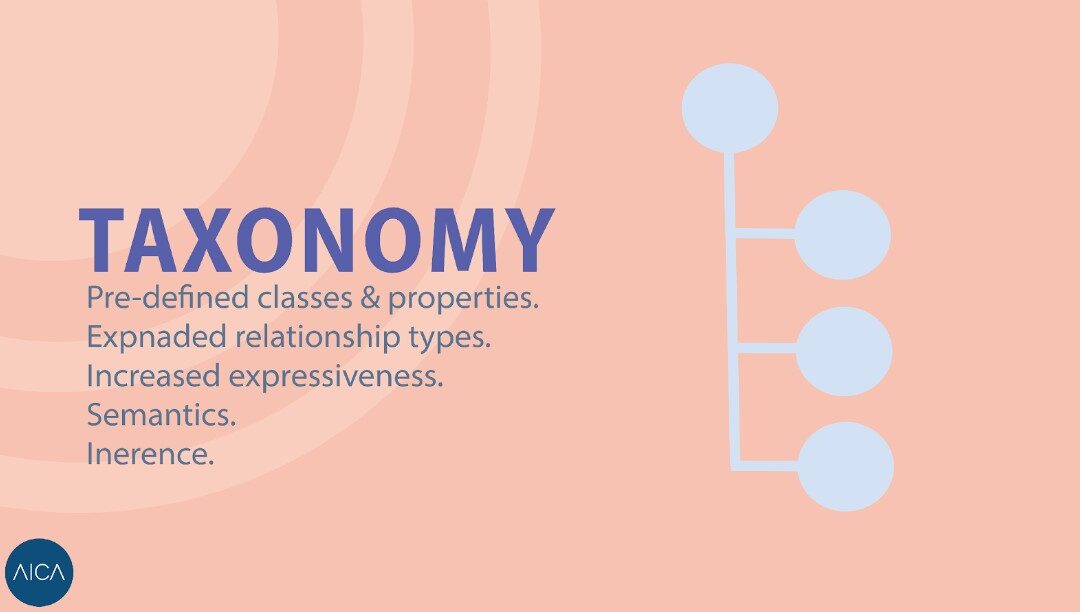Taxonomy and Ontology 101 – AICA
The digitalisation of businesses has led to a rise in information which is becoming more accessible every day. Businesses must be able to search for that information within their own systems and online and store it in ways that make it easy to interpret. This is where ontologies and taxonomies come in and save the day.
What is a taxonomy
A Taxonomy is a way of categorising items into a set of hierarchical categories. Therefore, taxonomies make it easier for users to find relevant information or products under a title or theme. For example when shopping for a shirt on a website you will have categories that streamline the results to focus on the relevant shirts that you are looking for (Shirts < Male < Medium < Blue). As a result, you don’t have to spend time sifting through irrelevant information, which helps with efficiency and user experience. Taxonomies provide structure to organisations and many other application fields. The use of taxonomy in business is extremely important as efficiency in both operations and with customers is vital. It is imperative to save both customer and business time and energy, and taxonomy does just that.
Taxonomies: Why are they important?
Taxonomies are a crucial internal component for the success of your business. On a website, you won’t find a medium shirt for sale in the large category or a computer for sale in the clothing aisle in a shop. This is all due to the implementation of taxonomies to categorise products and data which in return makes running a business easier and creates a better experience for customers. In order to attract new customers and retain them, you must create ease of use. Taxonomies are an effective way to increase sales and target your audience more directly. Taxonomies allow businesses to directly target customers at specific niches and as a result there may be an increase in sales and less time and resources spent on marketing to an audience that is not interested.

What are Ontologies
Ontologies are models that display information as a set of concepts in a domain and the relations between the concepts. You can think of it as being similar to a spider diagram that has the ability to be adjusted as new information about the domain becomes available. Many companies such as Facebook create data ontologies on their users based on their interests and searches. The user is the ‘’domain’’ and all the information gathered about the user forms the ontology. Creating ontologies allows businesses or people to easily identify and map relationships that a given domain has. Therefore an ontologies can be used by businesses to make sense of large amounts of data much quicker, in return allowing them to draw conclusions more efficiently.
Benefits of Using Ontologies in Your Business
Implementing ontologies in your business can drastically improve your knowledge of your customers. This is because you are able to link information or relationships back to the customer (Domain). For example your ontology involving customer X shows that they are interested in gaming and technology, this allows you to send relevant advertising to customer X that is relevant to him. As a result of creating these personal ontologies you are able to directly target customers needs or wants.
Ontologies can help you or your business visualise data and information. This is because an ontology can be viewed and analysed in a way that is structured and as a result you can then use this to identify patterns and trends across your organisation.
Ontologies can benefit problem solving capabilities in your business. This is because you are able to see all the relationships with a domain and then identify where the issue is. An ontology of a marketing strategy, for instance, may help you pinpoint areas in your strategy where it might be lacking. And therefore you can make the relevant changes.
Ontologies and taxonomies are great tools to use for understanding your customers, organising data, and improving processes. Think about how you could introduce these tools into your business to help you better understand how to run things more efficiently.
